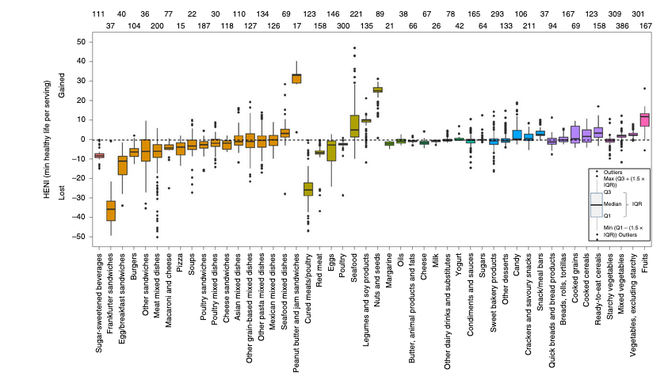Study: 1 Hot Dog Shaves 35 Minutes Off Life, Chicken Wings Cut 3.3 Minutes Off Life Span
Between the chicken wings and hot dogs that you've eaten over your lifetime, you should be dead by now, researchers say. A study from the University of Michigan shows that eating one hot dog can shave 36 minutes off your life while eating a serving of nuts could add 26 minutes to life. And one 85-gram serving of chicken wings will cost you 3.3 minutes of lost life. In other words, if you eat healthy you'll live longer and if you eat poorly, you'll die sooner.
Seems logical, right?
While dietary studies typically show Americans that coffee is good for them only to find out two weeks later, via the nightly news, that coffee is going to kill them, the UM researchers have put a time frame on how much of your life 5,800 foods will shave or add to your life.
"Generally, dietary recommendations lack specific and actionable direction to motivate people to change their behavior, and rarely do dietary recommendations address environmental impacts," said Katerina Stylianou, a doctoral candidate and postdoctoral fellow in the the Department of Environmental Health Sciences at the University of Michigan School of Public Health.
That's a nice way of telling those of us crushing hot dogs and wings to mix in a handful of nuts here and there.
Now for the big takeaways from Katerina's research:
Yep, we get that. Get the fruits and vegetables into the diet. Check. Watch out for the hot dogs. Check. Chill on the red meat. That's going to be tough, Katerina.
Now for the data on all of this. You'll notice that Katerina calls hot dogs "Frankfurter sandwiches." You'll also notice that eating peanut butter and jelly sandwiches is pretty much going to guarantee you'll live forever. Seriously, look at the minutes of life gained via PB&J versus fruits!
The next time you cringe over your kid wanting a PB&J, stop and think about how long he/she is going to live after crushing a sandwich per day for an entire month.

"The urgency of dietary changes to improve human health and the environment is clear," Olivier Jolliet, professor of Environmental Health Sciences at Michigan Public Health and senior author of the paper, said about the research.
"Our findings demonstrate that small targeted substitutions offer a feasible and powerful strategy to achieve significant health and environmental benefits without requiring dramatic dietary shifts."